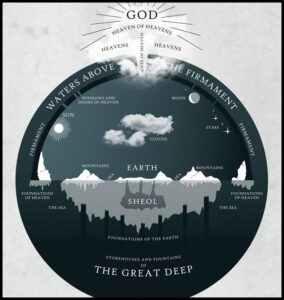Evidence is what we see, hear, or otherwise apprehend directly and personally, not secondhand or by hearsay, which helps to demonstrate the truth of some assertion. Evidence must be something objective and external to us, rather than inward feelings or conjecture. It is something that can stand up in court. Evidence does not cause something to happen. It proves that something did happen.
The Bible says that the evidence of the baptism in the Spirit is speaking in tongues and prophecy.
This lesson is limited to the evidence of speaking in tongues, since that is more common than prophecy as an initial evidence. When we observe someone speaking in tongues, we have irrefutable evidence that he or she received the baptism in the Spirit. If the person does not speak in tongues, but says he knows he has received the baptism in the Spirit by faith, even though it may be true, we cannot corroborate his statement because we have no evidence.
Avoiding Common Pitfalls
Unfortunately, we often read into the scriptures our own prejudices and experience. This is called eisegesis, as opposed to the proper task of exegesis, which is extracting from the Bible what it means. While it sounds very noble to claim that we do not practice eisegesis, we all are influenced by our own experience, traditions handed down to us, and a priori beliefs. Only the Holy Spirit can properly interpret the Bible since he is the Author or Inspirer.
But you have received the Holy Spirit, and he lives within you, so you don’t need anyone to teach you what is true. For the Spirit teaches you everything you need to know, and what he teaches is true—it is not a lie. So just as he has taught you, remain in fellowship with Christ. 1 John 2:27 (NLT) —
It is a misguided endeavor to limit our interpretation of the Bible to what scholars determine was the human author’s intention and meaning when he wrote, especially when it comes to prophecy, since we are told that it was the Holy Spirit “carrying them along” (2 Peter 1:21) when they spoke and wrote, often about things regarding which they had limited understanding at best.
This salvation was something even the prophets wanted to know more about when they prophesied about this gracious salvation prepared for you. 11 They wondered what time or situation the Spirit of Christ within them was talking about when he told them in advance about Christ’s suffering and his great glory afterward. 12 They were told that their messages were not for themselves, but for you. And now this Good News has been announced to you by those who preached in the power of the Holy Spirit sent from heaven. It is all so wonderful that even the angels are eagerly watching these things happen. 1 Peter 1:10–12 (NLT) —
Knowing that we all tend to approach Scripture from the frame of reference of what we already think, have experienced, or have been taught, we should be careful when interpreting those things that are outside of our own experience.
Humility keeps us open to receive more from God and does not insist that truth conform to our own theology or experience.
Another big obstacle is bad doctrine. Some Bible teachers have done a great disservice to the body of Christ by disseminating false teaching regarding the baptism and gifts of the Spirit. Overcoming such indoctrination is often quite a challenge, especially if we love, respect, and trust our previous instructors.
Just because someone knows a lot about the scriptures in general does not mean he or she understands everything.
While a bachelor can teach on marriage from the Bible, a married person will probably have much more insight and wisdom about life as a couple from having experienced marriage firsthand. A person may know what the Bible teaches about the new birth, but until we have personally experienced it, we cannot properly understand it. Likewise, well-intentioned Bible teachers have taught on the baptism and gifts of the Spirit without ever having received or experienced them, often because they have rejected that they are for today.
Jesus said we must obey the Word to understand it.
Anyone who wants to do the will of God will know whether my teaching is from God or is merely my own. John 7:17 (NLT) —
Spiritual strongholds are lie-based logical arguments we embrace that block us from believing God’s revealed truth and receiving the attached blessings.
We use God’s mighty weapons, not worldly weapons, to knock down the strongholds of human reasoning and to destroy false arguments. 5 We destroy every proud obstacle that keeps people from knowing God. We capture their rebellious thoughts and teach them to obey Christ. 2 Corinthians 10:4–5 (NLT) —
If we are taught and embrace a lie about the baptism or gifts of the Spirit, it sets itself up in our minds to keep us estranged from one of God’s biggest blessings – the Promise of the Father. Sowing lies is one of the devil’s primary strategies to hinder people from first coming to Christ and then, after we become Christians, to keep us from advancing in our faith and devotion to Christ. Overcoming lie-based strongholds requires us to embrace God’s truth, even when it opposes our previously held beliefs.
Traditions of men cannot be allowed to stand between us and God’s blessings.
The Record from Acts
Luke’s record of how the Holy Spirit worked through the early disciples of Christ in the years following his resurrection is found in Acts. We should allow the record to speak for itself instead of superimposing our own understanding and traditions on top of the Bible’s clear testimony.
Unfortunately, over time, unexperienced truth can be lost and buried like old ruins.
Thankfully, God has restored much to the church regarding the baptism in the Spirit over the last century beginning at Azusa Street, continuing through the Latter Rain Movement, and the Charismatic Renewal. In addition, over the past decades, God has restored our understanding and experience of apostles and prophets, two of the most neglected components of the Five-Fold or Ascension Gift Ministries described in Ephesians 4:11-12.
The first example of people being baptized in the Spirit is found in Acts 2.
When the day of Pentecost arrived, they were all together in one place. 2 And suddenly there came from heaven a sound like a mighty rushing wind, and it filled the entire house where they were sitting. 3 And divided tongues as of fire appeared to them and rested on each one of them. 4 And they were all filled with the Holy Spirit and began to speak in other tongues as the Spirit gave them utterance. Acts 2:1-4 (ESV)
The word Luke used in the above passage to describe what happened to the disciples is that they were “filled” with the Holy Spirit. Jesus told his followers that they would be “baptized” in the Spirit.
And while staying with them he ordered them not to depart from Jerusalem, but to wait for the promise of the Father, which, he said, “you heard from me; 5 for John baptized with water, but you will be baptized with the Holy Spirit not many days from now.” Acts 1:4-5 (ESV)
We should not be confused by the overlapping terminology. The “filling” recorded in Acts 2 was the ‘baptism” promised in Acts 1. The important thing for us is that this was another experience with the Holy Spirit, different from the new birth. This baptism in the Spirit filled those men and women to overflowing with the power and boldness of the Holy Spirit, to equip them for preaching the Gospel and ministering in Christ’s name.
But you will receive power when the Holy Spirit has come upon you, and you will be my witnesses in Jerusalem and in all Judea and Samaria, and to the end of the earth.” Acts 1:8 (ESV)
Speaking in tongues is the supernatural overflow of this filling or baptism in the Spirit.
Jesus taught that we speak out of whatever fills our hearts.
The good person out of the good treasure of his heart produces good, and the evil person out of his evil treasure produces evil, for out of the abundance of the heart his mouth speaks. Luke 6:45 (ESV)
We all talk about the things that excite us. If we are football fans, we love to speak about football. If we are fans of cooking, we share recipes. If we love nature, we talk of the outdoors. If we are filled with God’s Spirit, we will talk about Jesus. In some cases, we do so in other languages inspired by the Spirit of God.
When we overfill a pitcher of water, the overflow comes out of the spout. When God overfills us with his Spirit, the excess spills out in various ways, usually in verbal form. Our mouths are sort of a pressure relief valve.
Paul wrote the following.
And do not get drunk with wine, for that is debauchery, but be filled with the Spirit, 19 addressing one another in psalms and hymns and spiritual songs, singing and making melody to the Lord with your heart, Ephesians 5:18-19 (ESV)
Why should it surprise us that people begin speaking and singing when filled with the Spirit? The only real surprise is that we can and often do express our joy and excitement by speaking in unknown languages.
Here are some more examples from Acts.
While Peter was still saying these things, the Holy Spirit fell on all who heard the word. 45 And the believers from among the circumcised who had come with Peter were amazed, because the gift of the Holy Spirit was poured out even on the Gentiles. 46 For they were hearing them speaking in tongues and extolling God... Acts 10:44-46 (ESV) And when Paul had laid his hands on them, the Holy Spirit came on them, and they began speaking in tongues and prophesying. Acts 19:6 (ESV)
When Peter and John visited Samaria on the heels of Philip’s preaching the gospel there for the first time, they laid hands on the new believers because, even though they had believed and been water baptized, they had not yet been baptized in the Spirit. How did the apostles know? The most reasonable explanation is because they had not yet spoken in tongues.
When Peter and John prayed, something so remarkable happened that Simon the Magician begged to be given the power associated with laying on of hands. Most probably he heard the people begin to speak in tongues, just as happened the other times people were baptized in the Spirit in Acts.
Now when the apostles at Jerusalem heard that Samaria had received the word of God, they sent to them Peter and John, 15 who came down and prayed for them that they might receive the Holy Spirit, 16 for he had not yet fallen on any of them, but they had only been baptized in the name of the Lord Jesus. 17 Then they laid their hands on them and they received the Holy Spirit. 18 Now when Simon saw that the Spirit was given through the laying on of the apostles’ hands, he offered them money, 19 saying, “Give me this power also, so that anyone on whom I lay my hands may receive the Holy Spirit.” Acts 8:14-19 (ESV)
Conclusion
The record of Acts clearly shows us that the first disciples received the baptism in the Holy Spirit with the evidence of speaking in tongues and prophecy. This irrefutable evidence allowed Peter to argue successfully that he had to water baptize the Gentile Cornelius, since God obviously demonstrated his acceptance of him by giving him the baptism in the Spirit with the evidence of speaking in tongues.
There was no difference between what happened to the first disciples on Pentecost and what happened to Cornelius and the others later.
For they were hearing them speaking in tongues and extolling God. Then Peter declared, 47 “Can anyone withhold water for baptizing these people, who have received the Holy Spirit just as we have?” 48 And he commanded them to be baptized in the name of Jesus Christ... Acts 10:46-48 (ESV)
We should desire and expect no less for us who live today. God is the same, the promise is the same, and the need is the same.
Peter said to them, “Repent, and each of you be baptized in the name of Jesus Christ for the forgiveness of your sins; and you will receive the gift of the Holy Spirit. 39 “For the promise is for you and your children and for all who are far off, as many as the Lord our God will call to Himself.” Acts 2:38–39 (NASB95) —
Click here to see the other articles in this series.
You can read more about the baptism of the Spirit and the gifts in Pete's book, Promise of the Father, which is available on Amazon. Click here for the link.









